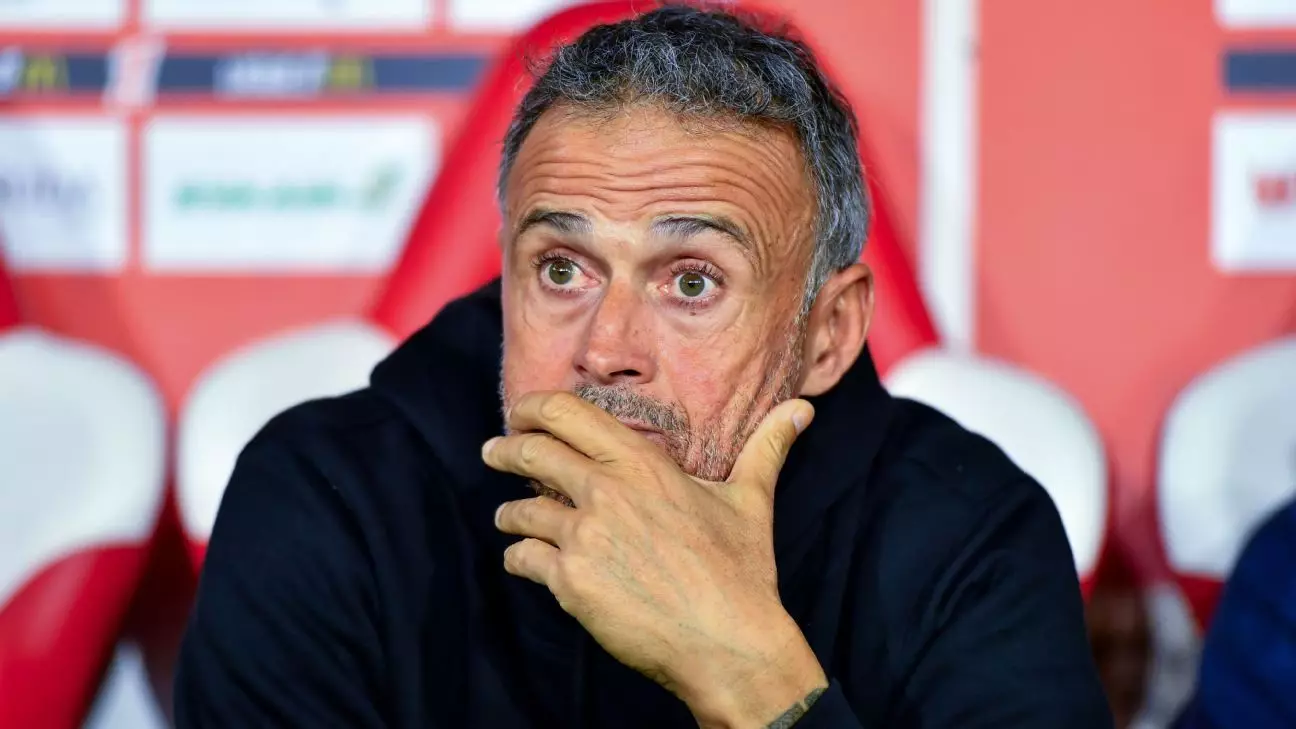The role of a football manager today surpasses mere tactical acumen and leadership skills. It has transformed into a multifaceted position that often includes navigating the intricacies of media relations. Luis Enrique, the head coach of Paris Saint-Germain (PSG), recently captured headlines when he expressed his willingness to take a significant pay cut—up to 50%—in exchange for reduced press obligations. This revelation highlights not only his personal preferences but also the broader tension between football management and media scrutiny.
Luis Enrique’s candid remarks regarding the press underscore a complex dynamic between coaches and journalists. While he disclosed a certain enjoyment in engaging with the media, it was evident that the exhaustive nature of press commitments, especially following matches, drains him emotionally. The lengthy interrogations, often focused on high-profile players like Kylian Mbappé, can overshadow a coach’s strategic input and lead to unnecessary exhaustion. Enrique’s frustration became palpable when confronted with questions about Mbappé, emphasizing a situation where past decisions continue to haunt present circumstances.
Mbappé’s high-profile transfer to Real Madrid looms large over PSG, deeply entwining Enrique’s press interactions. The recurring inquiries about the star forward symbolize not just a focus on a player’s departure but reflect deeper issues regarding PSG’s adaptability and strategy moving forward. Enrique’s exasperation was evident in his responses, revealing his desire to shift focus toward current team dynamics rather than rehashing past narratives. This highlights a significant challenge for coaches in the modern era: maintaining a constructive dialogue about their team’s future while being relentlessly pulled back to previous headlines.
Enrique’s acknowledgment that clubs impose a requirement for coaches to address the media reflects the rigid expectations inherent in top-tier football. Such contracts often prioritize public relations over the psychological well-being of managers. While many fans revel in the drama and stories behind the sport, coaches like Enrique face an uphill battle balancing personal convictions with professional demands. His hypothetical offer to cut his salary emphasizes a desire for autonomy that many coaches might not openly express.
Enrique’s unique perspective brings to light a necessary dialogue about the future of press relations in football. As the sport evolves, so too must the mechanisms that govern the interactions between coaches and the media. The necessity for transparency and communication is paramount, but it should not come at the expense of a coach’s mental health and professional focus. The concept of a coach-driven narrative, one that highlights strategy and team development rather than being perpetually tethered to individual players, could pave the way for more meaningful engagements.
Luis Enrique’s willingness to trade financial compensation for reduced media scrutiny serves as a potent reminder of the evolving landscape of football management. It provokes a critical reflection on how clubs can better support their coaches while keeping the sport engaging for fans. The conversation surrounding press obligations is far from over, but Enrique’s candid remarks could be the catalyst for needed change in this high-stakes arena.

